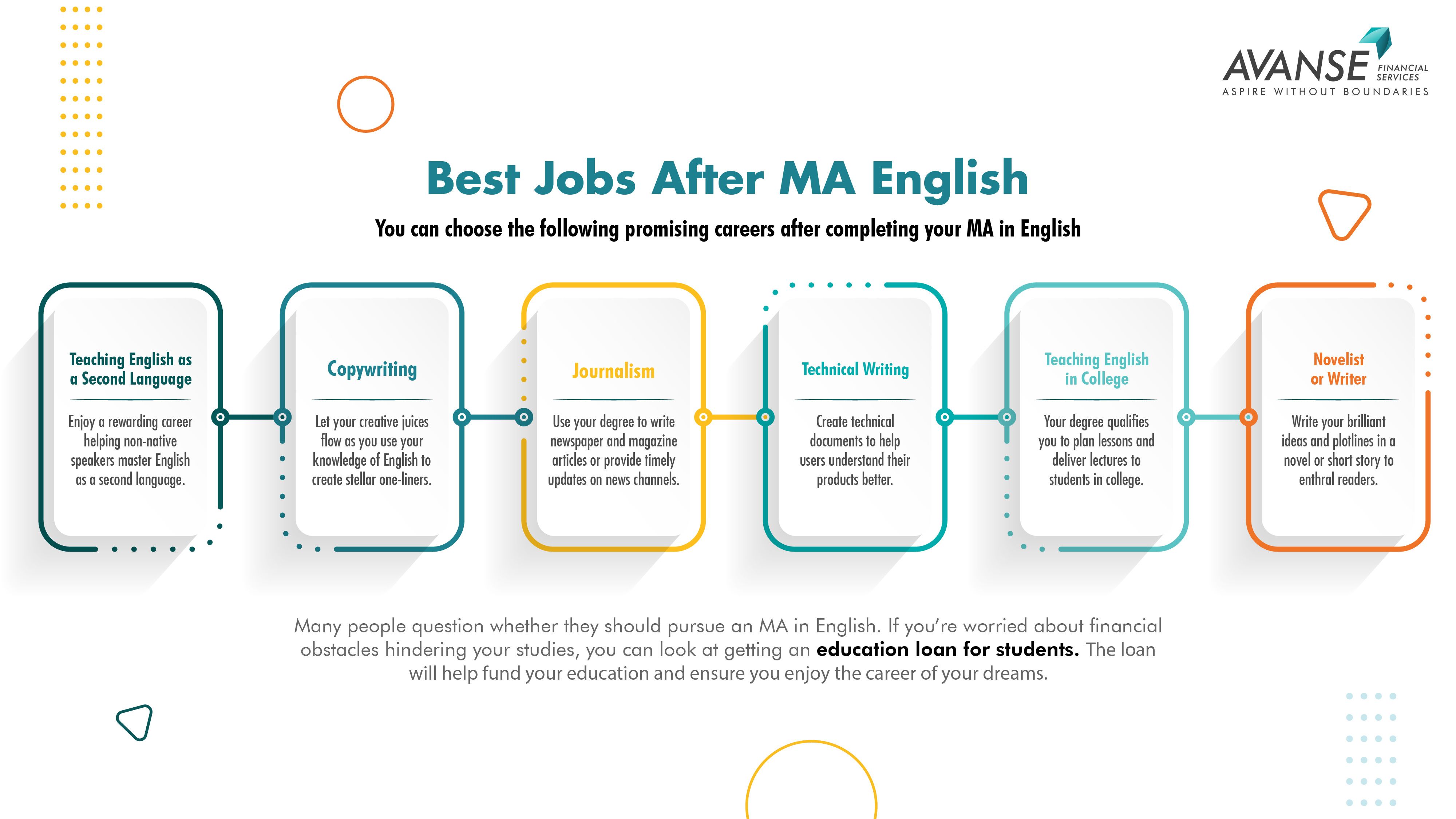Stories or Souls? Deciding Between an M.A. in English and an M.A. in Psychology

Blog / October 24, 2024
M.A. in EnglishM.A. in English vs. M.A. in PsychologyAs graduation approaches, almost 90% of students find themselves in a dilemma of selecting the right program. Two compelling options that often emerge after a B.A. in English are a Master of Arts (M.A.) in English and a Master of Arts (M.A.) in Psychology. Well, both fields offer distinctive insights into human experiences, yet cater to varied interests and career aspirations. Let’s understand in a better way.

M.A. in English vs. M.A. in Psychology
|
Criteria |
M.A. in English |
M.A. in Psychology |
|---|---|---|
|
Focus |
Literature, language, critical analysis, writing styles, literary theories |
Human behavior, mind, emotional processes, psychological theories, therapeutic practices |
|
Core Skills Developed |
Critical thinking, storytelling, literary criticism, creative writing, academic research |
Analytical thinking, research methodologies, understanding human behavior, counseling, and therapeutic skills |
|
Program Content |
Genres of literature, language studies, literary theories, writing techniques |
Psychological theories, cognitive and emotional processes, research methods, clinical practices |
|
Career Opportunities |
Teaching, publishing, content writing, editing, research, literary criticism, media |
Counseling, therapy, human resources, clinical psychology, research, social work, organizational psychology |
|
Best For |
Those passionate about literature, storytelling, writing, and in-depth critical analysis |
Those interested in understanding human behavior, emotional health, and mental processes |
|
Field Application |
Wide application in education, publishing, media, and research |
Practical application in mental health, therapy, HR, research, and social services |
|
Communication Style |
Analytical, creative, and interpretive |
Scientific, empathetic, and evidence-based |
|
Impact on Society |
Cultural and intellectual enrichment through literature and storytelling |
Direct impact on mental health awareness, individual well-being, and societal dynamics |
|
Ideal Candidate |
Someone who loves exploring literature, analyzing texts, and crafting narratives |
Someone who is compassionate, analytical, and interested in understanding and helping people |
|
Current Relevance |
Relevant in academia, media, and any field requiring strong communication and critical thinking skills |
Highly relevant due to the growing awareness of mental health and the demand for psychological professionals |
Key Factors to Contemplate
When contemplating whether to go with an M.A. in English or an M.A. in Psychology, you should take in account several key factors:
- Personal Interests: Think about what excites you. Question yourself if you are passionate about literature and storytelling, or are you intrigued by human behavior and mental health?
- Career Goals: Consider what your long-term aspirations are. Do you see yourself as an educator, writer, or therapist?
- Skill Development: Ask what skills you wish to develop. An M.A. in English enhances your analytical and writing skills, whereas an M.A. in Psychology emphasizes understanding human behavior and emotional intelligence.
- Job Market Trends: Research the job market before you choose any field. Evaluate current demands, salary expectations, as well as growth opportunities in your desired career option.
- Multi-disciplinary Opportunities: Take a deep dive into the possibilities of amalgamating interests. For example, narrative therapy combines storytelling and psychology, enabling professionals to utilize literature as a healing tool.
The choice between an M.A. in English and an M.A. in Psychology ultimately boils down to your passion and career goals. Though both post-graduate programs offer valuable skills and idiosyncratic perspectives, they cater to different facets of the human experience—stories or souls. However, if you are into storytelling and creating crisp compelling reports, then pursuing an M.A. in English could be a game-changer.
Empower Through Expression with an M.A. in English @ Shiv Nadar University (Institution of Eminence)
Established in 2011, Shiv Nadar University was founded by the Philanthropist and Co-Founder of HCL Technologies, Mr. Shiv Nadar with a vision and mission to offer its students a quality education. It is one of the youngest universities creating ripples in the education sector. Under the esteemed ambit of Shiv Nadar University, the School of Humanities and Social Sciences presents the M.A. in English course, skillfully crafted to blend academic excellence with creative exploration.
It leads the students’ right into the world of both: the rich history of English Literature and the literary world, while opening a broad spectrum of critical and cultural theory classes, creative writing, translation, and visual theory.
Further, the School’s commitment to balance out the student-to-mentor ratio enables thorough and multi-disciplinary writing courses. Academic writing, narrative composition, and public writing programs are mandatory in the program.
The M.A. in English Eligibility Criteria
To be eligible for a Master of Arts (M.A.) in English at Shiv Nadar University, aspirants must fulfill the below-mentioned criterion:
- Candidate must have completed his/her bachelor's degree from a recognized institution. The degree can be in English, literature, or a related field. Also, candidates from diverse academic backgrounds are welcome.
- A candidate must score at least a minimum percentage of 50% to 55%.
Wrapping Up
Undoubtedly, English is an important language that keeps our world interlinked, and M.A. in English offers the dynamic skills and in-depth knowledge to flourish in various high-end jobs. Ranging from public relations to journalism, there is no end of opportunities. By having an immaculate command of the English language, you will not only immerse into the maze of words but also carve out lucrative careers that are highly in demand globally.